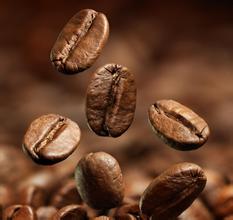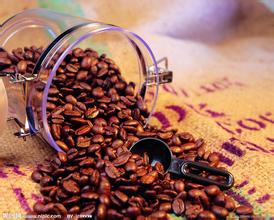Flavor description of Yega Shefi Woka Coffee Taste treatment Grinding scale Variety introduction
A brief introduction to the varieties of grinding scale by the method of taste treatment for the flavor description of Yejia Shifeiwaka coffee
Yejassefi's coffee trees were planted by European monks (a bit like Belgian monks growing wheat to brew beer) and were later transferred to farmers or cooperatives. Yejia Chuefei is actually constructed by surrounding coffee communities or cooperatives, including Edido Idido, Hafusa Harfusa, Hama Hama and Biloya near Fog Valley Misty valley, all washed with water, but there are also a small number of off-product beans engraved with sun to enhance the charming fruit aroma and mellow thickness. These mountain villages are foggy, like spring all year round, with a gentle breeze in summer, cool but not hot, rain but not damp, and no cold damage in winter, giving birth to a unique regional flavor of citrus and flowers. Coffee trees are mostly planted in farmers' own backyard or mixed with other crops in the field, the yield per household is not much, it is a typical rural coffee. Yega Xuefei won the prize beans almost from the above-mentioned coffee villages and communities.
Most coffee beans are washed with water, but a few peas are deliberately sunburned to enhance their charming fruit aroma and mellow thickness. These mountain villages are foggy, like spring all year round, with a gentle breeze in summer, cool but not hot, rain but not damp, and no cold damage in winter, giving birth to a unique "regional flavor" of citrus and flower fragrance. Caffeine F trees are mostly planted in farmers' own backyards or mixed with other crops in farmland, and the yield per household is not much, which is a typical pastoral coffee. Almost all of the award-winning beans come from the above-mentioned coffee villages and communities.
The coffee flavor treated with water is not easy to have wild flavor and has the characteristics of purity and freshness, which is suitable for light baking; this washing Ethiopia can reach the highest grade of G1, which is already a grade with few defects.
Flavor: distinctive floral, dry and wet fragrance with strong citrus flavor, lemon, kumquat, white grape juice, etc., colorful flavor, rich sweet and sour citrus in the middle and back, rich sweetness like soda, distinct personality, outstanding, very rare to see

Important Notice :
前街咖啡 FrontStreet Coffee has moved to new addredd:
FrontStreet Coffee Address: 315,Donghua East Road,GuangZhou
Tel:020 38364473
- Prev

Taste characteristics of Brazilian sirado coffee beans Flavor description Processing method Grinding scale
In addition to the unique soil and climate, there is also a special phenomenon, that is, when you are near the coffee growing area, there will always be one or two farms where livestock are raised. The existence of farms is characteristic of the structure of the agricultural community in Xilado. coffee plantation
- Next

Flavor characteristics of Nicaraguan coffee beans introduction to the producing areas of taste grinding scale varieties
According to the measurement, compared with the same kind of coffee beans, the higher the altitude, the greater the acidity and the lower the concentration; on the contrary, the smaller the acidity and the higher the concentration, so for those who like the sour taste of the fruit, high-altitude coffee is very suitable for you, it is your good coffee; for those who do not like the sour taste of fruit, high-altitude coffee is your good coffee.
Related
- Detailed explanation of Jadeite planting Land in Panamanian Jadeite Manor introduction to the grading system of Jadeite competitive bidding, Red bid, Green bid and Rose Summer
- Story of Coffee planting in Brenka region of Costa Rica Stonehenge Manor anaerobic heavy honey treatment of flavor mouth
- What's on the barrel of Blue Mountain Coffee beans?
- Can American coffee also pull flowers? How to use hot American style to pull out a good-looking pattern?
- Can you make a cold extract with coffee beans? What is the right proportion for cold-extracted coffee formula?
- Indonesian PWN Gold Mandrine Coffee Origin Features Flavor How to Chong? Mandolin coffee is American.
- A brief introduction to the flavor characteristics of Brazilian yellow bourbon coffee beans
- What is the effect of different water quality on the flavor of cold-extracted coffee? What kind of water is best for brewing coffee?
- Why do you think of Rose Summer whenever you mention Panamanian coffee?
- Introduction to the characteristics of authentic blue mountain coffee bean producing areas? What is the CIB Coffee Authority in Jamaica?

